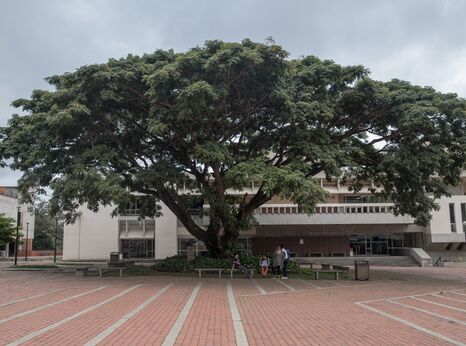Venezuela: Detained for defending women and girls' rights

Vannesa Rosales’ detention occurs in a context of systematic repression and criminalization of human rights defenders in Venezuela. The harassment and stigmatization against those who carry out this work in the country are constant and many are the target of reprisals such as threats, public stigmatization, arbitrary detentions, and attacks on their physical integrity.
Sexual and reproductive rights are severely restricted in Venezuela, whose legislation on this matter is one of the most restrictive in Latin America. The interruption of pregnancy is classified as a crime under the penal code, except in cases where the life of the pregnant person is in danger. Despite repeated calls by national organizations defending sexual and reproductive rights, as well as international organizations, and unions such as the Venezuelan Medical Federation, Venezuela continues to have a legal framework regulating access to abortion which is not aligned with international human rights law and standards and that does not reflect the current reality in the country.
The absence of effective public policies on sexual and reproductive health, the general scarcity of information and contraceptive methods of any kind, the limitations on reproductive health services, and the deterioration of the public health system in Venezuela significantly obstruct the enjoyment and protection of sexual and reproductive health and rights. Many girls and adolescents in Venezuela live in vulnerable situations, in the midst of a fragile economic climate, limited educational opportunities and being exposed to gender-based violence in their social environment. All of this translates into an increase in the adolescent pregnancies, clandestine abortions, maternal mortality and morbidity, and a lower quality of life for women and girls in Venezuela.
In 2014, the Committee on the Elimination of All Forms of Discrimination against Women (CEDAW) made observations on the Venezuelan legislation on violence against women, girls and adolescents and termination of pregnancy. Among them, it noted its concern over the insufficient measures that address violence against women and girls, and the lack of effective access to justice. Likewise, it warned, "The restrictive legislation on abortion that forces women to resort to unsafe abortion, which often harms the health of the pregnant woman and sometimes causes death," urging the government to modify its legislation, particularly in cases such as rape and to guarantee the availability of services for the safe termination of pregnancy.
In October 2020, Vannesa Rosales responded to a request for support from a woman and her 13-year-old daughter. The girl was her student and had been raped by a man from her neighbourhood, which had resulted in pregnancy. In a previous medical consultation, the girl's mother had been warned that the pregnancy put her daughter's life at risk.
As part of the irregularities committed since the beginning of the process, the Scientific, Penal and Criminal Investigations Unit (CICPC) went to the health center where the girl went with her mother to receive post-abortion care. According to the information available, although the CICPC had received the report of the rape and had not carried out any investigation at the moment, it proceeded to take the statement from the girl without legal representation and to establish who had helped her terminate the pregnancy. This illegally taken statement was used to justify the subsequent arrest of Vannesa Rosales.
The girl who Vannesa accompanied in the termination of her pregnancy belongs to a community with limited resources. The pregnancy was diagnosed as risky by a medical provider due to the girl's age. Her socio-economic status made her situation even more precarious. The sexual offender is a fugitive from justice while Vannesa continues to be deprived of her liberty.
Vannesa’s case highlights the lack of due diligence on behalf of the state to address acts of violence against women, particularly sexual violence, and ensure women who are victims of sexual violence can access timely and adequate sexual and reproductive health care. On the contrary, women who dedicate their lives to supporting victims and fighting for their rights are being criminalized by the system.